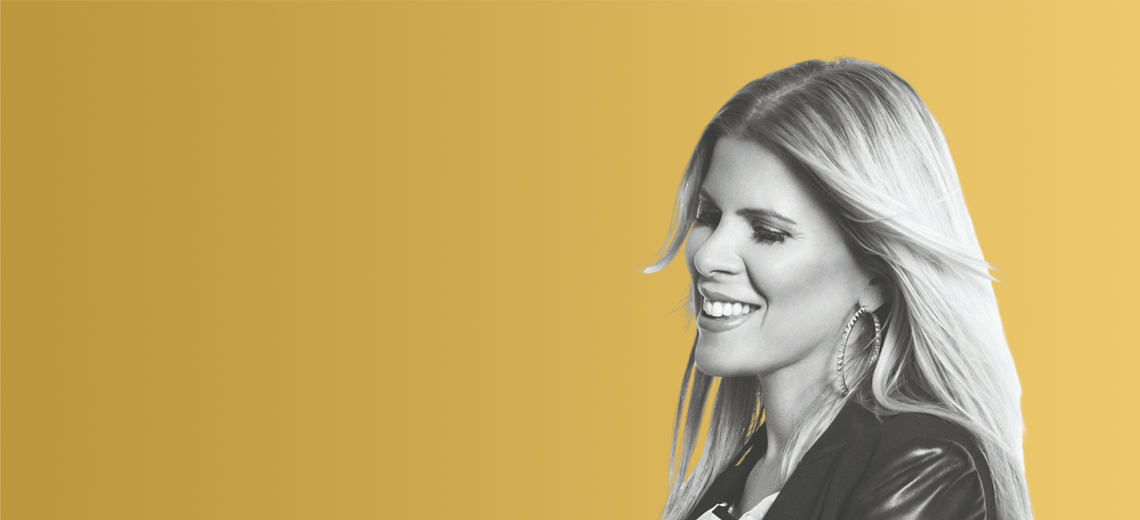This is an episode of the Glossy Beauty Podcast, which features candid conversations about how today’s trends are shaping the future of the beauty and wellness industries. More from the series →
Subscribe: Apple Podcasts | Stitcher | Google | Spotify
In New York City, one can find a nail salon almost as easily as a bodega. But across the Atlantic, in London, the same could not be said — at least until the early 2000s, according to Charlotte Knight, founder and CEO of Ciaté London, Lottie London and Skin Proud. After noticing the overall void for nail care within the beauty industry in London, Knight, an interior designer turned celebrity nail technician, founded nail-care brand Ciaté in 2009.
“I wanted to bridge that gap between runway to retail,” and expand the availability of the nail art seen on the runway and in magazines to the public, said Knight on the Glossy Beauty podcast.
“We have become known as innovators and disruptors in all things — pigment, innovation and color,” said Knight, who later founded Gen-Z makeup brand Lottie London. “Lottie’s collaboration strategy is all about ’90s nostalgia,” with nostalgic characters like My Little Pony.
“What I love about this Gen-Z community [is that] they have bundles of confidence like never before,” said Knight, who attributes this, in part, to social media.
Like the company’s Gen-Z consumer, Lottie London and its sister-brand Skin Proud, which launched in April of 2020, have also tapped into TikTok, a factor that may have helped them to “[stand] firm” amid the challenges of the pandemic. In terms of sales channels, the company also expanded into Walmart, which has worked to reach the Gen-Z consumer’s radar.
“Their commitment to social challenges and environmental issues is incredible, [which] is so meaningful to the Gen-Z consumer today,” she said.
As for the future, Knight pledges to maintain a focus on her current brands, along with new brands that are in the works. “We [the Lottie brand] create product that enables that demographic to unleash their creativity,” she said. “We’re going to be using all of our efforts to double down with the three brands that we currently have.”
Below are additional highlights from the conversation, which have been lightly edited for clarity.
On her first memory of beauty
“My first memory is with my grandmother. Growing up, I always used to watch her getting ready for a night out on the town with my granddad, in awe. She would never be without her luscious red lipstick and beautifully polished, red manicure. She used to sit for hours getting herself ready, spraying decadent perfume all over herself. Her closet was filled with luxurious fabrics from all around the world and the most incredible shoe collection… I would watch her get ready for a night out, and that was my first entry into watching the magic of beauty and how it can make people feel confident. She almost took on a different character once she put on her makeup.”
Diversification is key
“When you’re building out a company, diversification in all areas is key to the success and the growth of the brands and of the company overall. Moving into Skin Proud, we had initially talked about adding skin care to Lottie, and that was the path that we were going down for about a year. All of our product development [and] focus were on adding skin care to Lottie, and it was in the last three months before we were ready to press the button on everything that I woke up one morning with this troubled mind. And I called an urgent meeting with my team and I said, ‘Guys, you’re going to hate me, but I’m not sure about this… I don’t feel that it is meaningful enough. I want to have this skin-care line be cool and meaningful — [so much so] that somebody would want to wear the brand name on a sweatshirt, they would want to wear it on a T-shirt. And it was at the time of BLM, and Black Lives Matter was front-and-center in every communication, and especially [it] was important in the world of beauty. It was then that I tasked the team and I said, ‘Look, before we press the button on this, I want you to go away and think. Everything that we’ve created with this brand is about inclusivity, it’s about being proud of your skin. No matter the tone, the texture, the anything that you have going on with your skin, be proud of it. Stop feeling the need to filter your skin and Facetune your skin, and try to encourage this Gen-Z consumer to love themselves more.’ … We knew that we wanted the range, and we knew that we were creating a clean, accessible, transparent and easy-to-use skin-care line. And I had this moment where I felt what we’ve created here is something special.”
On maintaining brand’s individual identities
“We’ve built them to have their own identities. We don’t put them together in any which way; we don’t link them. When we were creating Lottie, somebody put it to me that it should be launched as Ciaté’s younger sister, that that’s how it should be positioned as a diffusion brand. And I didn’t want to do that. I felt that that has worked well in fashion. I haven’t seen it work well in the world of beauty, historically. These brands are strong enough in their own right to stand on their own and earn that customer’s interest… It’s never been a strategy to market them as connected or as part of a family of brands.




